Actress Ruth Jones says dementia scheme will tackle stigma
- Published
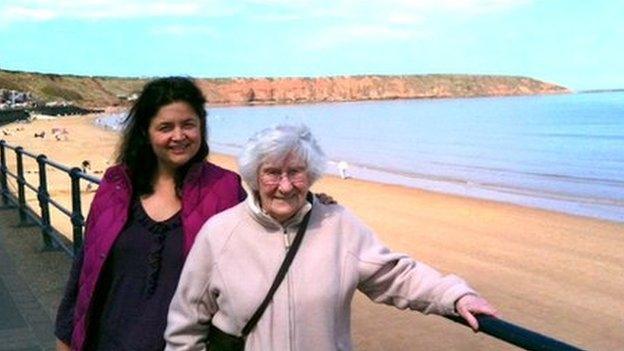
Actress Ruth Jones (left) said accepting her mother-in-law Margaret Peet had dementia helped the family cope
A new programme which aims to change the way people think, talk and act about dementia has been launched in Wales.
The Dementia Friends programme teaches people to recognise the signs of the illness and how to help those with it.
Gavin and Stacey star Ruth Jones, whose mother-in-law Margaret Peet had dementia, said it would help tackle the stigma often associated with it.
There are over 45,500 people estimated to be living with dementia in Wales.
A Dementia Friend learns a little bit more about what it is like to live with dementia by attending a one-hour session and then uses it to help someone in the community.
That could be helping someone find the right bus to spreading the word about the illness on social media.
The project by Alzheimer's Society was launched after a survey found less than half - 46% - of people in Wales felt they had a good understanding of dementia.
Actress Ruth Jones has been working with the charity since her mother-in-law was diagnosed in 2008.
She said the initiative would help raise awareness.
"People have very misguided perceptions of the disease and think 'why is that person behaving weirdly?'" she said.
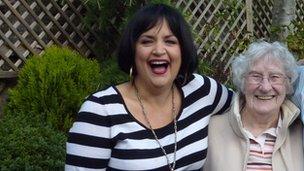
Ruth Jones dressed as her Gavin and Stacey character Nessa with Margaret
"So I think the more we talk about it, the more that people attend these Dementia Friends sessions, finding out more about it, it does take the stigma out of it.
"It gets rid of other people's fears of the disease because I think sometimes we can be frightened about any mental illness and there's really nothing to be scared of," she added.
'Felt relieved'
One of those who could benefit from the scheme is Chris Roberts, 52, from Rhuddlan, who was diagnosed with dementia 12 months ago.
His symptoms started in 2008 when he started forgetting where he put things and gradually progressed to him forgetting how to drive.
Actress Ruth Jones says talking about dementia would help people accept the illness
"You don't know if you're going mad, but when they actually gave us the diagnosis we actually felt relieved because we had a name for it," he said.
"At one stage we were hoping for a brain tumour, because at least that's operable."
"With a brain tumour you have hope - with Alzheimer's, at the moment, there's less hope," his wife Jayne added.
Dementia symptoms can include memory loss and difficulties with thinking, problem-solving or language.
It is caused when the brain is damaged by diseases, such as Alzheimer's disease or a series of strokes.
It is a progressive illness, which means the symptoms will gradually get worse.
- Published10 December 2013

- Published4 July 2013
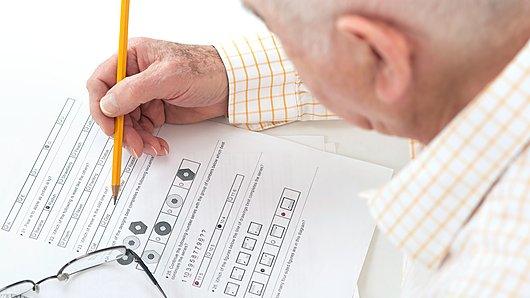
- Published11 June 2013
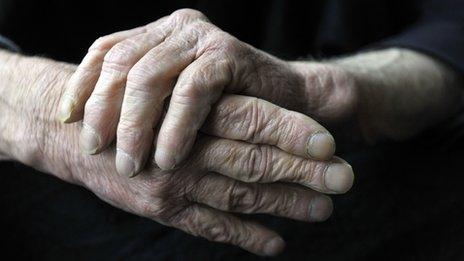
- Published21 May 2013
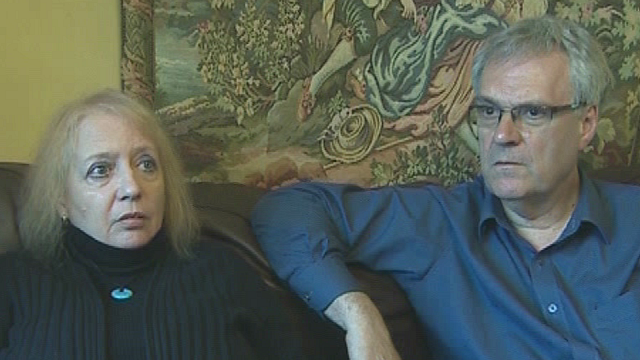
- Published15 January 2013
